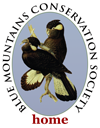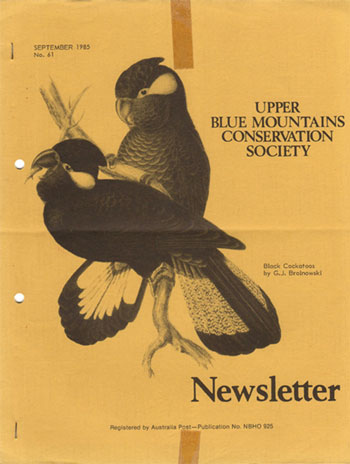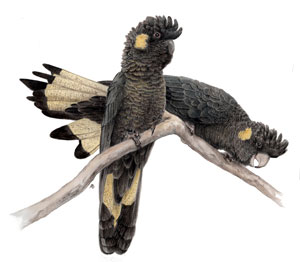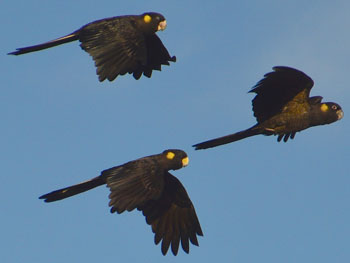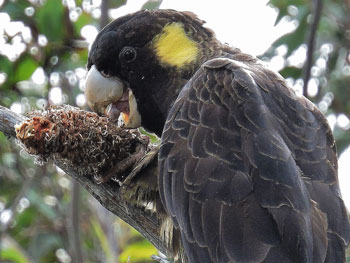The Upper and Lower Blue Mountains Conservation Societies merged in 1995.
The logo was taken from an illustration by Gracius Broinowski that was featured in his 1888 book "The Cockatoos and Nestors of Australia and New Zealand".
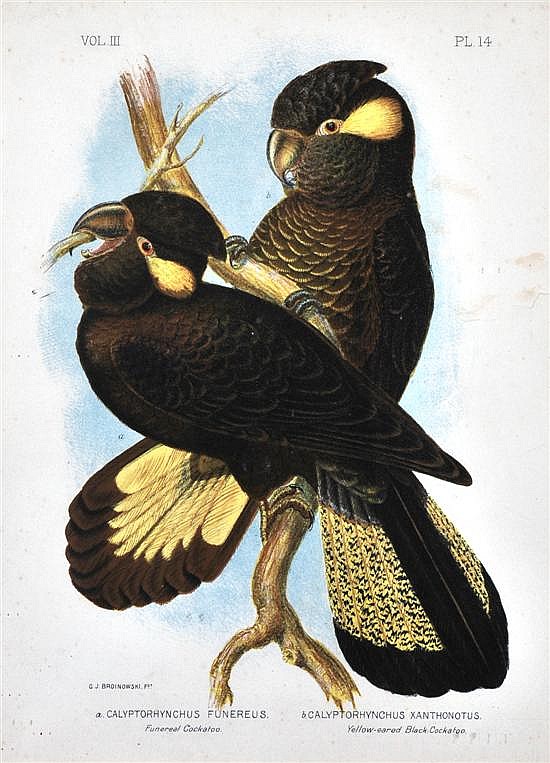 Plate 14 - "The Cockatoos and Nestors of Australia and New Zealand"
Plate 14 - "The Cockatoos and Nestors of Australia and New Zealand"
(click the image to see a larger version)
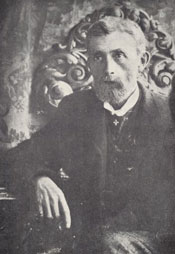 Gracius Broinowski
Gracius Broinowski
He arrived in Victoria in 1857, and travelled widely in eastern Australia before settling in Sydney in 1880.
Gracius was a natural history artist, teacher and ornithologist, and had several volumes of illustrated works published.
He died in Sydney in 1913.
Gracius's 1888 drawing shows our cockatoos as two different species -
- Calyptorhynchus funereus - Funereal Cockatoo
- Calyptorhynchus xanthonotus - Yellow-eared Black Cockatoo
C. xanthonotus is now a "race" or subspecies of C. funereus.
- C. funereus funereus (Melbourne to Rockhampton)
- C. funereus xanthonotus - (Melbourne to Port Lincoln and Tasmania)
The Yellow-tailed Black Cockatoo is the largest "cockatoo". The male has a red eye-ring.
Wikipedia contains a good treatment.
These magnificent photos were kindly provided by Emanuel Conomos, Sue Wildman and Dilshara Hill.
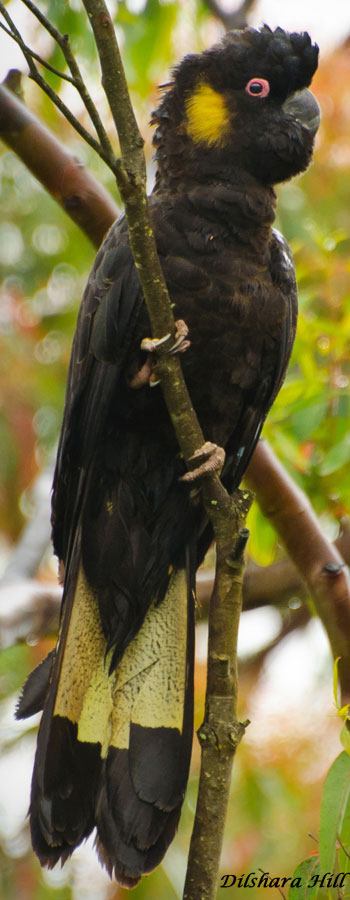 Yellow-tailed Black Cockatoo (male) (Dilshara Hill)
Yellow-tailed Black Cockatoo (male) (Dilshara Hill)
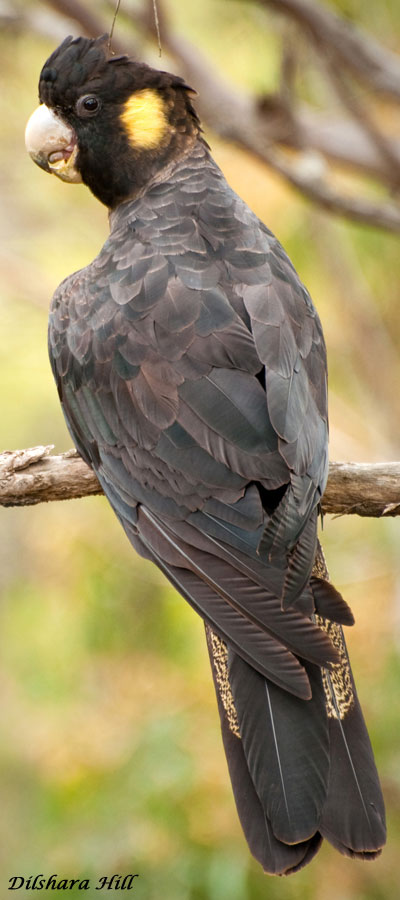 Yellow-tailed Black Cockatoo (female) (Dilshara Hill)
Yellow-tailed Black Cockatoo (female) (Dilshara Hill)
– the Darug and Gundungurra people –
and pay respect to their Elders past, present and emerging.
